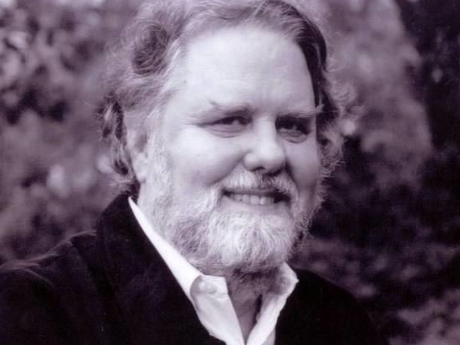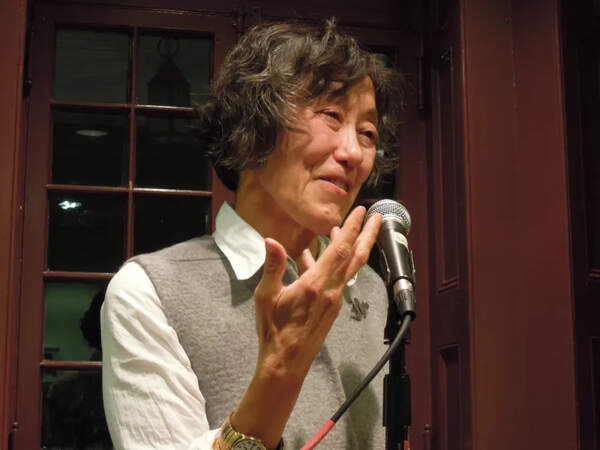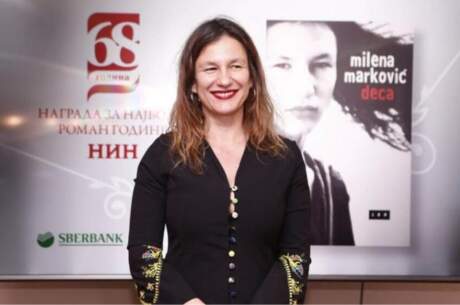Interviews
Questions of Faith: Coleman Barks

"Questions of Faith" is a selection of excerpts from interviews that Dianne Bilyak has conducted over the past decade. The interviews began as her master's thesis for The Institute of Sacred Music & Arts at Yale Divinity School. The poets were queried about their religious upbringing, current practices, and how these may or may not have influenced their writing, as well as general questions related to faith, doubt, and meaning, and more specific questions related to each poet's work.
* * *
Dianne Bilyak: What was the role of organized religion in your childhood?
Coleman Barks: First, a story. When I was ten or eleven, in Sunday school at the First Presbyterian Church in Chattanooga, I was set the task of memorizing the Shorter Catechism, a series of well over a hundred questions and answers. I remember the first one.
Q. What is the chief end of man?
A. To glorify God and enjoy Him forever.
I love that enjoy. The rest of the questions are a blank until question #108.
Q. What is sin?
A. Sin is any want of conformity unto, or transgression of, the Law of God.
Here is the scene. Mother is sitting at her end of the sofa in the study, a place she calls her "nest." I am directly across in dad's reading chair. I cannot manage to recite the verbal obfuscation of that answer to what sin is, try as I might. Mother gets so fed up with the whole exercise she throws the catechism against the wall above my head and above the big Philco we all listened to the 2nd World War on. It slaps against the paneling, slides down behind the radio, and there it stays. We need a new word, (matriflotsomate?), for the frog slap of that open catechism, thrown by my mother so sick and tired of my trying, and failing, to say the mind-strangling answer to What is sin?
DB: What role does religion play for you as an adult?
CB: I was the first in my family not to take my children to church, the first to be divorced too. The hurling of the Q&A seems to have broken my cultural conditioning with Chattanooga country club Presbyterianism. My older brother became an ordained Presbyterian minister. (He later left that calling to work in education.) We grew up right next to the Tennessee River, and the beauty of that going-by gave me, early on, a truer sense of the sacred. I had a place I would go to be by myself, and feel that living presence inside me. It is still there. I was, and am, a river mystic. A riparian, riverine aesthetic flows in my writing much more vitally than any Christian influence. The shining reaches are downriver, upriver, under, and spread out into the sky all at once, a definite place, and a station of awareness too.
The other story, of how I got friendly with the Sufi mystics, is told elsewhere (in Rumi: The Big Red Book, p. 484). That friendship has nothing to do with organized religion. No dogma, no received beliefs there, just experience, and the way of the heart. An anonymous emailer has been asking me recently, "Are you a Muslim?" It sounds combative and threatening in the current atmosphere. I point him toward my teacher's (Bawa Muhaiyaddeen) universalist answer to that question (BRB, 479). He says he doesn't have that book and comes back with the one blunt question. Organized religions have fanatical possibilities that could become dangerous to the health of the planet, not to mention the dear individuals. It is time for us to feel more comfortable in a place that is not identified with any particular religion (or nation or race or cultural system), but respectful of the truth in all those masks of God, as Joe Campbell calls them. Surely after Campbell's research, we are all universalists, as the Sufis have so gently recommended for centuries. The human soul is way more vast than any definition. I am that, a voice says, I am. Existence itself is conscious and holy. The very IS is divine, alive, and we are swimming in it. Ibn Arabi says it this way:
The Love Religion
The inner space inside
that we call the heart
has become many different
living scenes and stories.
A pasture for sleek gazelles,
a monastery for Christian monks,
a temple with Shiva dancing,
a kaaba for pilgrimage.
The tablets of Moses are there,
the Qur'an, the Vedas,
the Sutras and the Gospels.
Love is the religion in me.
Whichever way love's camel goes,
that way becomes my faith,
the source of beauty, and a light
of sacredness over everything.
—Ibn Arabi
Postscript. But let it be said. I do love the old Appalachian shaped note hymns (in the oblong Christian Harmony book). I sing them as loud and local as any Raymond Hamrick I might be standing beside.
DB: I feel that your work with Rumi has loosened the grip that some publishers and academia have had on poetry. Your translations have entered into the lives and hearts of people who don't necessarily read or write poetry. Do you have any thoughts or intuitions on why much of contemporary poetry does not reach a wider audience?
CB: I think there is a lot of wonderful work being done in contemporary poetry, but poetry has always been a marginal art here. Someone has said that the twelve best poets writing today could walk twelve abreast down a main street anywhere in this country and not be recognized by anyone. The movies and the songs and the novels have entered the cultural mind much more than the poets have, and yet there is wonderful work being done. It may be just the difficulty of reading poetry. It's not like a movie; you can go to a bad movie and still have something to look at. Even if the acting is horrible and there is no plot and nothing makes any sense, it is still kind of fun and you eat popcorn. But poetry is just stuck there on a page. I don't know if many people outside of schools ever look at poetry. Very few people feel a kind of longing for poetry in their body. There has to be almost an appetite for a poem. When you feel that once or twice, you begin to want it, and it becomes nourishment to you.
DB: Do you feel a part of you asked for this life? Can you imagine your life without Rumi and what that might have been like?
CB: It would sort of be dull and less friendly. He has brought me so many friends, and I think one of the purposes of his poetry is to get people together. In Discourse #44, Rumi says that God exists between a human being and what he or she wants. So that when asking for what you really want, you have to live out your desire-body and live through it, and then the desire changes as you become more conscious of it. Rumi's work has brought a lot of happiness because he is so consciously and hilariously alive. His vibrancy is just so real, and it keeps reminding me of the experience, as a kid, of coming out of a movie feeling more hungry for my own life.
* * *
Coleman Barks is the author of numerous Rumi translations and has been a student of Sufism since 1977. His work with Rumi was the subject of an hour-long segment in Bill Moyers'sLanguage of Life series on PBS, and he is a featured poet and translator in Bill Moyers's poetry special, "Fooling with Words." He lives in Athens, Georgia.
Dianne Bilyak has been nominated for a Pushcart Prize and her first book of poems, Against the Turning, will be released in September 2011. Through the Institute of Sacred Music at Yale Divinity School, she received a graduate degree in religion and literature. She has been interviewing poets for several years and editing the transcripts for inclusion in a manuscript called Poetic Faith. Please visit her website.


